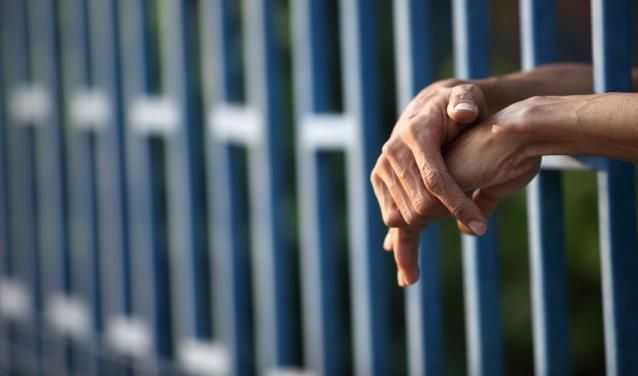Home>Improving crime prevention

22.06.2018
Improving crime prevention
How can criminality be prevented? Does imprisonment help reduce recidivism in the long term? Sciences Po researcher Roberto Galbiati studies the economics of crime. He has begun to open up the black box of incarceration and anti-recidivism policies in France, Italy and the United States. Dr. Galbiati will present his research findings on 4 July at a symposium organised by Sciences Po’s Laboratory for Interdisciplinary Evaluation of Public Policies (LIEPP) in partnership with France Stratégie.
Part of your research focuses on the economics of crime. What does that concern exactly? Why is it of interest to a researcher?
My research focuses on the economic analysis of law, with one central question: how can we design effective legal institutions? As in other fields of economics, it all begins with the problem of “externalities”. One person’s activity has consequences on another person’s well-being, without this being an economic transaction or exchange. Crime is a negative externality: it has negative consequences for people’s lives without offering any compensation.
In this context, the law is used to create a cost that is supposed to influence individuals’ behaviour. The law, by setting a scale of penalties for example, makes it possible to internalise the externality by modifying the incentives, so that individuals consider the external effects of their actions. The idea is that the heavier the punishment for a crime, the less it will be committed. These topics interest economists because the consideration of externalities is central to economic theory.
You have also studied the prevention of recidivism...
Yes, my research concentrates particularly on prisons and recidivism because they are social problems. Incarceration has a financial and social cost for society. How and to what extent should this instrument be used? Prison sentences are designed to have three functions: to deter individuals from committing an offence, to remove their ability to do so by imprisoning them, and finally to rehabilitate them. The deterrence function—that is, the impact of sentencing on crime—has been studied to a large extent. The second function is obvious—in principle, someone in prison can’t commit a crime. Rehabilitation, however, is a real black box. Incarceration is thought of as an instrument to reduce recidivism. Yet it is well known that prisons struggle to perform this function. An increasing amount of research shows that imprisonment has the effect of encouraging criminality.
What do evaluations of crime prevention and anti-recidivism measures tell us?
For crime prevention, the scientific literature clearly shows that action needs to focus on education and the labour market. Better-educated individuals with a job are less likely to commit a crime. For ways of preventing recidivism, things are a lot less clear. How do you break the crime-prison-crime cycle? The research so far gives us little to go on. Action can be taken on two levels: what you do when the individual is in prison and what do you do when he or she gets out. All kinds of measures are possible: helping prepare prisoners to look for work, removing the stigma associated with prison, offering vocational training during or after a prison sentence, etc. Due to a lack of evaluation, there is very little information on the effectiveness of these measures. This is another area in which research has a lot to contribute, especially from the perspective of public policy evaluation.
Are these lessons taken into account in political debate? And if not, why not?
Research on these topics is starting to enter the debate in the U.S. but much less so in France. In continental Europe, there is no culture of economic evaluation of the law. The focus is more on the effectiveness of the law than on the impact of criminal justice policies. In the U.S., it’s partly a question of education. Law and Economics courses are taught at laws schools and lawyers also get more training in statistics. In France, judges don’t get that training. Furthermore, the culture of public policy evaluation in France is progressing, but slowly. There is a communication problem between academics and public authorities, and it starts with the language: the research is in English while communication with the authorities is in French. This reduces the possibility of conducting new evaluations and taking the research findings into account. Creating points of contact between academics and public-sector decision-makers is extremely important. Laboratories such as LIEPP that have a knowledge transfer mission can play an intermediary role in this regard.
What is your current research on?
Judges in the U.S.! Along with Emeric Henry, a fellow researcher in the Department of Economics at Sciences Po, I am looking at how to reduce the possibility of errors or abuses in judges’ decisions. Judges’ freedom is essential. They have more information than legislators with which to adapt sentences and they must be able to make their decisions freely. However, this freedom also comes with a risk of error or abuses. How can judges’ freedom be maintained while reducing the possibility of errors or abuses? We chose to study this question in the U.S., mainly because that is where we were able to obtain relevant data. The question of access to information is central to public policy evaluation.
Interview by Juliette Seban, LIEPP head manager
Symposium “What is the circulation and influence of evaluations? The case of criminal justice and prison policies”, 4 July 2018, Sciences Po, organised in partnership with France Stratégie. Information and registration.
Find out more
- About Roberto Galbiati’s research
- About Sciences Po’s Laboratory for Interdisciplinary Evaluation of Public Policies (LIEPP)
- Subscribe to “News from Sciences Po”, and receive Sciences Po’s top news every month
- Subscribe to Cogito, Sciences Po’s research newsletter